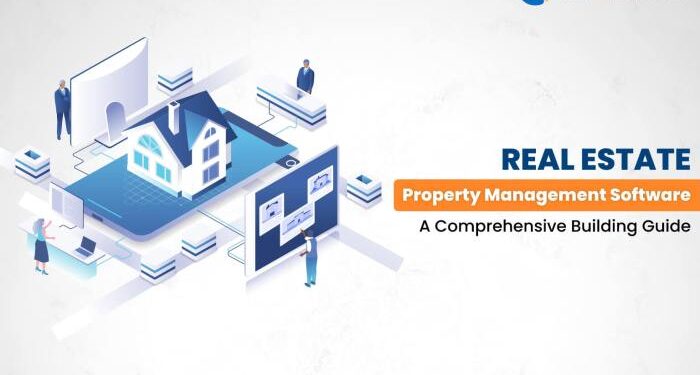Delve into the world of real estate property management, where effective strategies and key responsibilities play a vital role in maximizing investments. This topic offers a comprehensive look at the ins and outs of managing various properties, ensuring financial stability and positive tenant relations along the way.
Overview of Real Estate Property Management
Real estate property management involves overseeing and maintaining properties on behalf of the owners. This includes tasks such as rent collection, property maintenance, tenant relations, and ensuring compliance with local laws and regulations.Effective property management is crucial for real estate investments as it helps maximize the value of the property and ensures a steady income stream.
By keeping the property well-maintained and attracting reliable tenants, property managers can help owners achieve their financial goals and protect their investment.
Key Responsibilities of Property Managers
- Collecting rent from tenants on time and handling any late payments or issues.
- Maintaining the property by overseeing repairs, renovations, and regular upkeep.
- Screening and selecting tenants to ensure they are reliable and capable of paying rent.
- Handling tenant relations, including addressing complaints, resolving conflicts, and enforcing lease agreements.
- Ensuring compliance with local laws and regulations, such as fair housing laws and building codes.
- Managing finances related to the property, including budgeting, accounting, and reporting to the property owner.
Property Management Strategies
When it comes to property management, different strategies can be implemented based on the type of property being managed. Residential properties, commercial properties, and vacation rentals each require unique approaches to maximize profitability and tenant satisfaction. Let's explore some key strategies in property management.
Long-term vs. Short-term Property Management Strategies
- Long-term property management focuses on securing stable, reliable tenants for an extended period, ensuring consistent rental income and reduced turnover costs.
- Short-term property management, on the other hand, targets transient tenants such as vacationers or short-term renters, maximizing profits through higher rental rates but facing the challenge of frequent turnover.
Examples of Successful Property Management Tactics
- Implementing regular property maintenance schedules to ensure the property remains in top condition, attracting and retaining tenants.
- Utilizing effective marketing strategies to reach potential tenants and minimize vacancies, such as online listings, social media advertising, and networking with real estate agents.
- Establishing clear communication channels with tenants to address any concerns promptly and foster positive landlord-tenant relationships.
- Adopting technology solutions like property management software to streamline processes, track rental payments, and manage maintenance requests efficiently.
Tenant Relations and Communication
Maintaining positive tenant relations is crucial in property management as it helps in fostering a harmonious environment, ensuring tenant satisfaction, and reducing turnover rates. Effective communication plays a significant role in building trust and resolving issues promptly.
Effective Communication Methods
- Regular Updates: Keep tenants informed about any changes, maintenance schedules, or upcoming events through emails, newsletters, or notices.
- Active Listening: Pay attention to tenant concerns, feedback, and requests to show that their opinions are valued.
- Open Door Policy: Encourage tenants to reach out with any issues or questions and ensure prompt responses to maintain transparency.
- Professional Tone: Use clear and respectful language in all communications to convey professionalism and build a positive relationship.
Handling Tenant Complaints and Resolving Conflicts
- Listen First: Allow tenants to express their grievances without interruptions and show empathy towards their concerns.
- Investigate Thoroughly: Look into the issue promptly, gather relevant information, and propose solutions to address the problem effectively.
- Offer Solutions: Provide options for resolving the conflict and work together with the tenant to find a mutually beneficial outcome.
- Follow-Up: After resolving the complaint, follow up with the tenant to ensure their satisfaction and maintain a positive relationship.
Financial Management in Property Management
Effective financial management is crucial in property management to ensure the success and profitability of real estate investments. Property managers are responsible for handling various financial aspects, including rent collection, budgeting, financial reporting, and more.
Rent Collection
One of the primary responsibilities of property managers is to ensure timely rent collection from tenants. This involves establishing clear rent payment policies, enforcing late fees when necessary, and maintaining accurate records of all rent transactions.
Budgeting
Property managers must develop comprehensive budgets that Artikel income and expenses for each property. By carefully planning and monitoring financial resources, managers can effectively allocate funds for property maintenance, repairs, and other necessary expenses.
Financial Reporting
Regular financial reporting is essential for property managers to keep property owners informed about the financial performance of their investments. Managers should provide detailed financial statements, including income and expenses, to help owners make informed decisions about their properties.
Strategies for Maximizing Income
- Implementing competitive rental rates based on market analysis.
- Regularly reviewing and adjusting rent prices to stay competitive.
- Minimizing vacancies by effective marketing and tenant retention strategies.
Minimizing Expenses
- Regular maintenance to prevent costly repairs in the future.
- Seeking competitive bids for services to reduce costs.
- Implementing energy-efficient practices to lower utility expenses.
Ensuring Financial Stability for Property Owners
- Providing transparent and detailed financial reports to property owners.
- Implementing cost-saving measures to maximize profits for owners.
- Regularly communicating with owners about financial performance and potential investment opportunities.
Closing Notes
In conclusion, mastering the art of real estate property management involves a delicate balance of financial acumen, strategic planning, and excellent communication skills. By implementing the right tactics and fostering positive relationships, property managers can elevate the value of properties and ensure long-term success for owners.
FAQ Corner
How can property managers ensure financial stability for property owners?
Property managers can ensure financial stability by implementing effective rent collection strategies, creating detailed budgets, and providing regular financial reports to property owners.
What are some examples of successful property management tactics?
Successful property management tactics include proactive maintenance planning, thorough tenant screening processes, and timely response to tenant concerns.
Why is maintaining positive tenant relations important in property management?
Maintaining positive tenant relations is crucial as it leads to higher tenant retention rates, reduces vacancies, and fosters a harmonious living or working environment within the property.
















